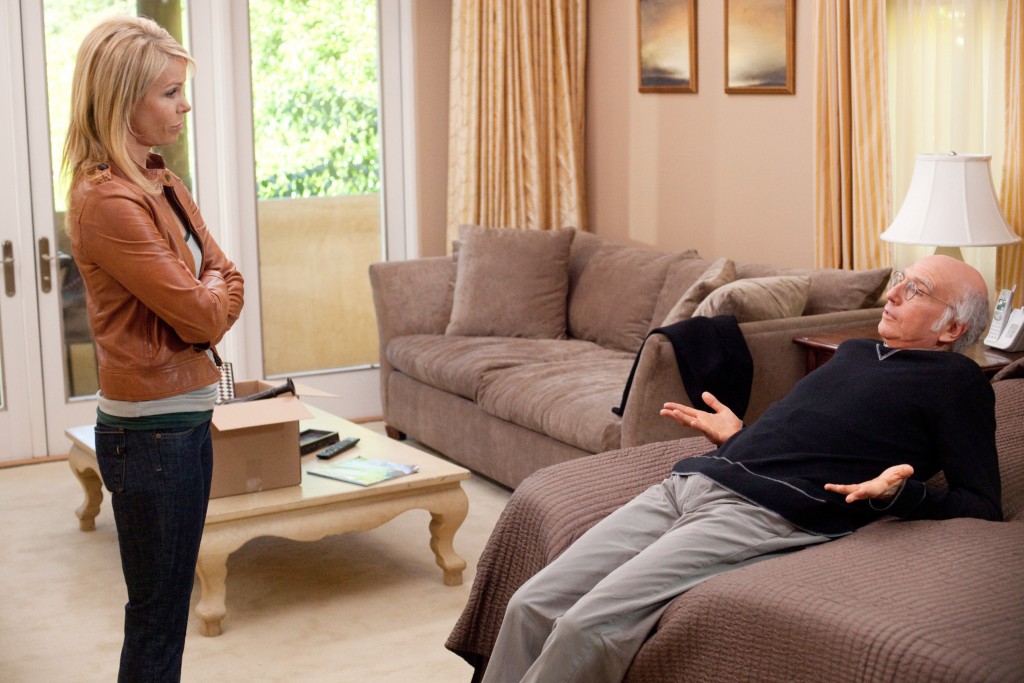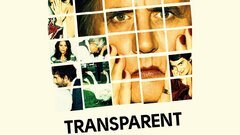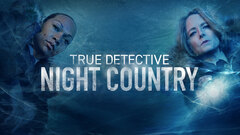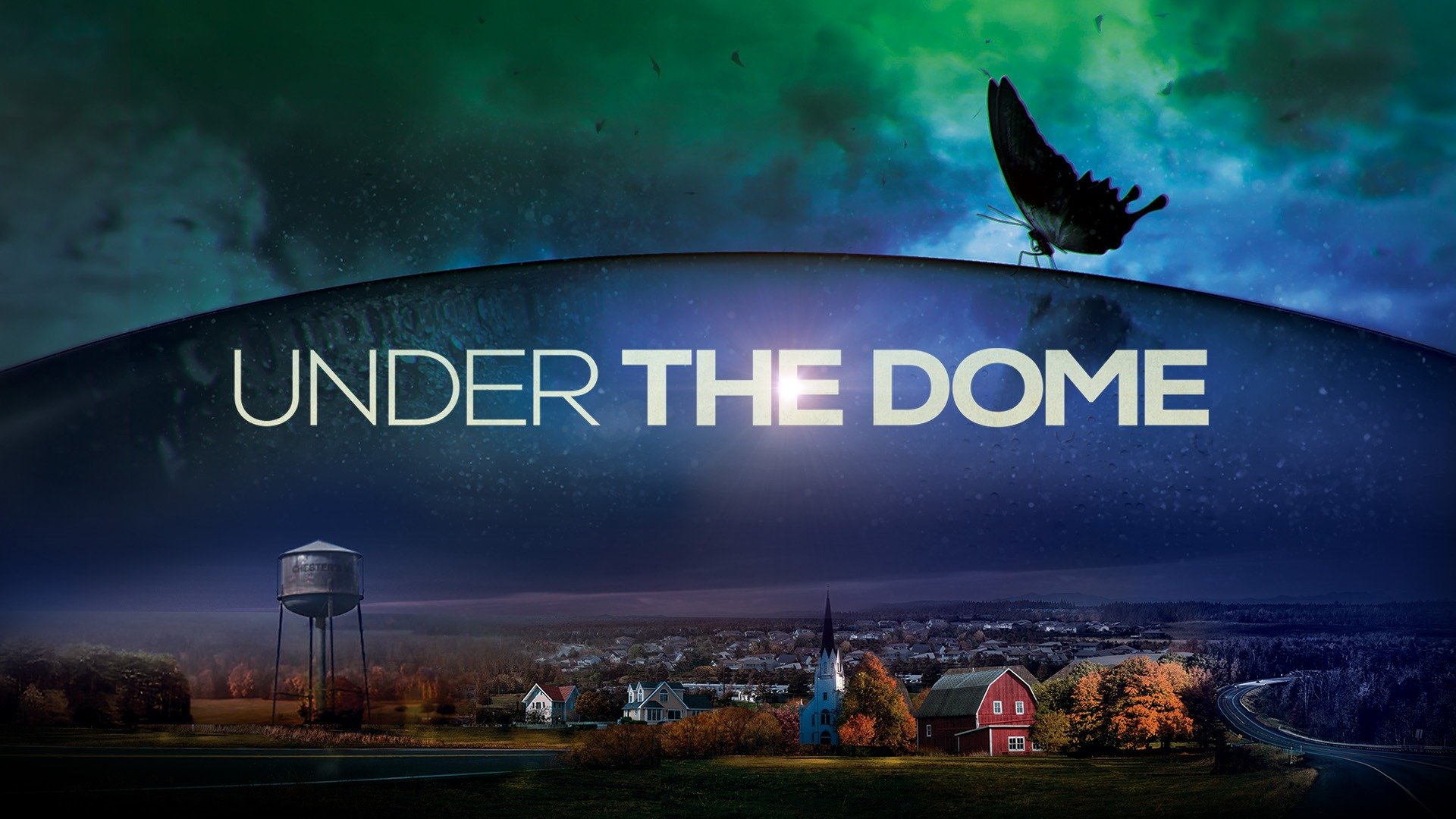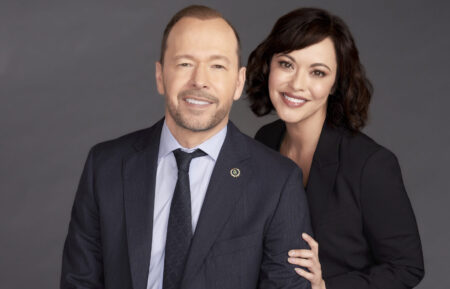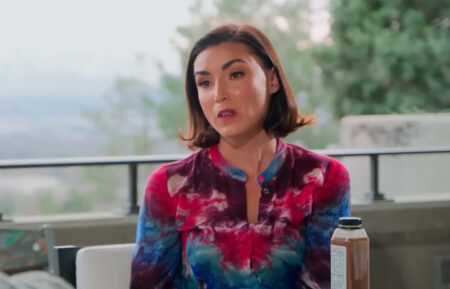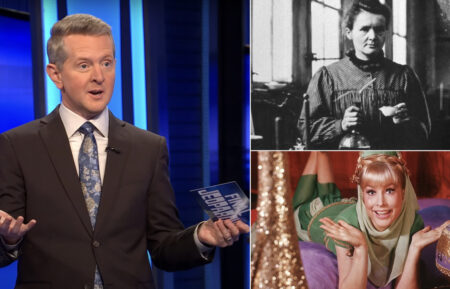Ask Matt: TCA’s ‘Transparent’ Snub, ‘Curb’ Still MIA, ‘True Detective’, ‘Under the Dome’, Binge Strategies and More

Welcome to the Q&A with TV critic (also known to some TV fans as their “TV therapist”) Matt Roush, who’ll address whatever you love, loathe, are confused or frustrated or thrilled by in today’s vast TV landscape. One caution: This is a spoiler-free zone. Don’t ask what’s going to happen on a show. I prefer to find out along with everyone else. Please send your questions and comments to [email protected] and follow me on Twitter.
Question: Can you help explain how the Television Critics Association, of all groups, failed to give one of the year’s most universally acclaimed shows, Transparent, a single TCA Award—not even to the incredible Jeffrey Tambor? What were they thinking? What were they watching? — Kayla
Matt Roush: Turns out the TCA system is as imperfect as any other secret-ballot voting. None of us in the group knows how others are voting, and because Transparent was nominated in several categories, it’s possible that some of the membership felt Transparent was a lock for one award—I, like many, thought Jeffrey Tambor was a shoo-in for “Individual Achievement for Comedy” for the performance of the year in comedy or drama—and may have chosen to spread the wealth to other shows in other categories. Thus Amy Schumer, a worthy nominee and most definitely the comedy flavor of the year, won twice: for her show Inside Amy Schumer as “Outstanding Achievement in Comedy” (which is justifiable) and for “Individual Achievement” (somewhat less so, because of the Tambor factor), a double win that in retrospect seems regrettable because Schumer didn’t even bother to show up for the ceremony. And I can only imagine the eloquent acceptance, and the enthusiastic reception, if Tambor and/or Transparent had won.
But it’s not as if the TCA ignored Transparent. It was also nominated for “Outstanding New Program,” which went to Better Call Saul (which was that show’s best shot for a win, so again, arguably a fair call) and “Program of the Year,” which went to Empire, whose cultural impact can’t be denied—although the way Transparent taps into the cultural zeitgeist regarding the subject of gender transition and identity made it just as eligible. I didn’t poll my fellow members to see just who decided not to vote for Tambor, but we certainly left ourselves open for criticism with that oversight.
Question: I have two unrelated questions. First, whatever happened to Curb Your Enthusiasm? I know it’s HBO’s longest-running show, but I can’t even remember the last time it aired.
My second question concerns True Detective. I know that many feel that the second season lagged compared to the first, but I found myself enjoying it. The only problem I had was with its difficult storyline. Is there any way shows like True Detective, which have difficult plots and storylines, could place some sort of guide online for fans to have, so we can better understand what the heck is going on? True Detective has so many characters, plots and twists that trying to understand can make one’s head spin. True Detective isn’t the only show like this. The Wire, The Shield, Ray Donovan, Breaking Bad, just to name a few, are the same way. How do they expect viewers to enjoy the show, when it seems that it would take a rocket scientist to figure out what in the world is going on? — Marques, Charlotte, NC
Matt Roush: Hard to believe, but there hasn’t been a new season of Curb since 2011. And don’t hold your breath for the next one, but also don’t give up hope. As is his habit, Larry David will do a new season when he’s good and ready—and over this last year he was busy performing on Broadway in a play he’d written. During the recent TCA press tour, HBO programming chief Michael Lombardo revealed that just before the play opened, Larry teased the exec by whipping out a notebook and saying, “This is the next season.” Before we get too excited, Lombardo said, “We have nothing planned for next year, but… I certainly see this as a continuing dialogue with him. A long one, but a continuing one.” And one that will very likely be worth the wait.
As for True Detective‘s maddening and (from critical consensus) unsatisfying second season, it doesn’t take a rocket scientist—or even a professional TV critic—to point out that the obfuscation of the plotting was perhaps even more infuriating than the stilted, pretentious dialogue. What a disaster. And it may be a failing of network websites if they don’t provide a who’s who/what’s what recap, given the high volume of serialized dramas that it’s almost impossible to keep up with, let alone remember what happened season to season. But there’s no shortage of online resources (Wiki or otherwise) that tend to provide that kind of information. It just takes some effort on the part of the viewer, who has to become a True Internet Detective and do some homework, depending on the show.
Question: [via Twitter] I wonder how much of the success of True Detective Season 1 was Matthew McConaughey and Woody Harrelson. — Lisa
Matt Roush: And let’s not forget the contributions of Season 1 director Cary Fukunaga, who deservedly won an Emmy for the outstanding “Who Goes There” episode. But yes, the performance most particularly of Matthew McConaughey (airing just as he was riding the Oscar wave for Dallas Buyers Club) was a major factor in the first season popping the way it did. But to be fair to writer Nic Pizzolatto, he created a fascinating character in Rust Cohle, and unfortunately no one in the second season measured up to that whacked-out philosopher crime-solver. And for those of us who could see past the dazzle of the acting a year ago, and lamented the lack of a compelling plot or satisfying resolution amid Cohle’s fascinating mumbo-jumbo, the hollowness of Season 2 was not such a surprise. Just a terrible disappointment.
Question: When Hulu announced at the TCA press tour that it would be releasing episodes of its original series on a weekly basis, rather than the Netflix binge model, you tweeted that “it makes shows easier to write about/discuss. Also: more pleasurable than forced binge.” Could you elaborate on that? — Angie
Matt Roush: That comment stimulated quite a bit of interesting Twitter discussion. While Stephanie tweeted, “In a weird way I find this very refreshing,” I also heard from Jeremy, who wrote, “You’re not exactly forced to binge. People usually want just one more episode right now.” To which I replied (and he more or less agreed), and I paraphrase: “A middle ground would be nice: Release a handful (not all) of episodes weekly, whetting the appetite without overwhelming.” While I’m not ignorant to the fact that many viewers love to binge on a full season of a new show over (I’d like to think) a couple of days, my experience has almost always been that after consuming four or five episodes in a row, even a great show’s flaws are magnified by this sort of repetitive viewing, and I find myself looking for a break. (It’s also a fact that binge-watching is more appealing for those who don’t watch a wide variety of TV in the volume that my position requires; sitting and watching 10-13 very long hours of any show means I’m skipping lots of others, which is why it often takes me quite a while to finish a full season of a Netflix show when it’s dumped all at once.)
Writing for as long as I have about episodic TV, I’ve always enjoyed the experience of calling out a special episode when it premieres during the run of a season. The binge model makes that almost impossible, which is why I responded to Hulu’s release strategy so positively. And as Hulu’s execs remind us, once a full season is online, binge-watchers can have at it any time they want. Let me add that Hulu’s new comedy Difficult People is such a scream that I might even have binged its entire season if it were available. So no system is perfect. But what would it hurt to make, say, three to four episodes of a show available one week, then release the others similarly in successive weeks, building up demand and making the rollout of new episodes more of an event? Just a thought.
RELATED: Difficult People‘s Dark Humor Skewers the World Without Apologies
Question: Longtime reader of your column in the print edition of TV Guide Magazine as well as this online site. I have been watching Under the Dome since it has been on, and I have to admit that this year the introduction involving the Dome only being up for “three weeks” has been driving me a little crazy. I realize that time may be different there, but in terms of episodes and all the days and nights, there is no way it is only “three weeks.” This has become an issue with Barbie and Julie, since they make a point that Barbie has had a longer relationship with Lilly but she has only been on since this season. Big difference between TV time and Dome time, and wondering why they have to keep saying “three weeks.” — Faye
Matt Roush: That’s your problem with this show? I’ll admit that the ceaseless parade of interesting new TV this summer, and such distractions as the critics’ press tour, have kept me from spending much time in or outside, under or above the dome this season—but I basically broke up with this series at least a year ago, when it became clear it couldn’t sustain with any semblance of logic a premise that should by all rights have been a season-long miniseries. But yes, the notion that all of this nonsense has occurred within such a short window of time may lead the parade of silly inconsistencies. My advice: fast-forward or mute the intro if it makes you feel better about your continued devotion.
Question: Why does ABC never show reruns of Last Man Standing in the summer? It must do well on Fridays during the season, but then it disappears for four months. People may forget it’s still on. — Dave
Matt Roush: Look around. With few exceptions, the networks are out of the summer-repeat business, gauging (usually correctly) that short-term summer originals will bring more viewers than repeats. Sitcoms are among the few forms of scripted entertainment that tend to repeat fairly well, but because ABC hasn’t yet developed what it considers a suitable companion piece to Last Man Standing on Fridays (last season’s Cristela was the most recent casualty), ABC has instead chosen to replay old episodes of its most popular Friday show, Shark Tank. A different strategy might have been to double-run Last Man repeats, or pair it with repeats of one of the network’s sitcoms from other nights, such as The Middle, The Goldbergs or Fresh Off the Boat, but because those are already being repeated elsewhere, there may be a fear of oversaturation. But don’t be too worried that people won’t notice when Last Man returns in the fall. ABC will promote its return (and the launch of the unpromising Dr. Ken behind it), and fans will be there.
That’s all for now, but we’ll pick up the conversation again next week. Can’t do it without your participation, so please keep sending questions and comments to [email protected] or shoot me a line on Twitter.

